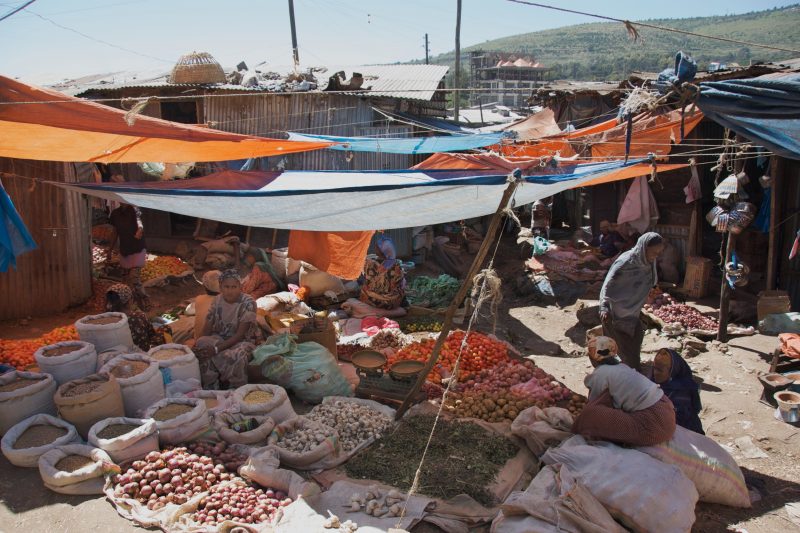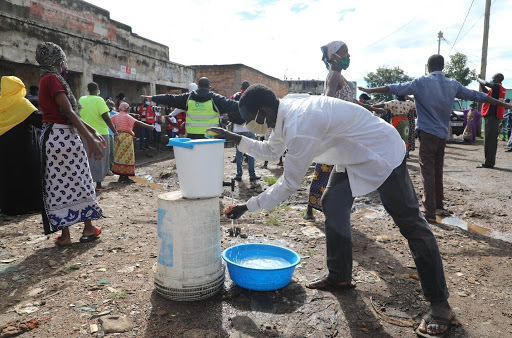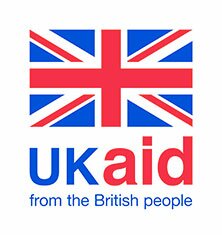COVID-19

This research report is the fourth in a series of six rounds of research, looking at the effects of COVID-19 on the poor and vulnerable urban households in Ethiopia. The report assesses the governments ongoing response to the pandemic as well as changes in household food security, livelihoods, education and access and use of health services and, explores how attitudes and behaviour towards the pandemic have changed. The results so far indicate that there have been varied impacts throughout the research sample, which to an extent are related to structural inequalities. The first three reports are available here.
Authored by Donna Harris, Biniyam Tadesse, Israel Mitiku, Mekdes Demissie, Alula Teklu, Girmay Medhin, and Frehiwot Belachew.






This report presents the methodology and results of a microsimulation based on a partial equilibrium modelling framework using nationally representative household-level data for Bangladesh. The findings include an estimate of the potential impact of COVID-19 on poverty in the country based on a model that assumes heterogeneity of impact across individuals and households depending on the type and sector of employment. Moreover, the model is used to assess the effectiveness, coverage, and adequacy of the social protection response to COVID-19. The microsimulation results complement a larger Bangladesh country case study that documents the way in which social protection programmes, processes, and delivery systems have been used to respond to the COVID-19 crisis.






This brief from the third report in a 6-part series, explores the impact of COVID-19 and government response measures on poor and vulnerable groups in urban areas in Ethiopia. The findings highlight four key areas for urgent attention: misconceptions about COVID-19, rising food prices, inadequate and costly water supply and a reduction in the number of people receiving aid. The full research report can be found here. Authored by Donna Harris, Biniyam Tadesse, Israel Mitiku, Mekdes Demissie, Alula Teklu, Girmay Medhin, and Frehiwot Belachew.






This brief summarizes the recommendations and learning from the report published which explores the role that traditional leaders have played in the response to COVID-19 in Sierra Leone.






Credit: Kasper Bøgsted Kristensen, Danish Red Cross
This brief from the second report of a six-part series exploring the impact of COVID-19 on vulnerable groups in Ethiopia, highlights the importance of policies that ensure the most vulnerable benefit from the support provided by government and other organisations, and that the process of targeting the support is transparent. Authored by Donna Harris, Alula Teklu, Girmay Medhin, Israel Mitiku, Biniyam Tadesse, Mekdes Demissie, and Frehiwot Bekele. The study is funded through the Building Resilience in Ethiopia (BRE) Programme and implemented in partnership with the Maintains Programme.



Credit: Kasper Bøgsted Kristensen, Danish Red Cross



Credit: Stanford Alumni Association Travel-Study Program, October - November 2007
This brief presents key findings from round one of a six part study, exploring the impact of COVID-19 and government response measures on poor and vulnerable groups in urban areas in Ethiopia. The full research report can be found here. Authored by Donna Harris, Alula Teklu, Girmay Medhin, Israel Mitiku, Biniyam Tadesse, and Mekdes Demissie. The study is funded through the Building Resilience in Ethiopia (BRE) Programme and implemented in partnership with the Maintains Programme.



Credit: Stanford Alumni Association Travel-Study Program, October - November 2007





Credit: John Bundi / Kenya Red Cross Society
This executive summary of the full report documents the experiences and challenges of scaling up the response to COVID-19 in the first three months of the outbreak – March to May 2020 – in five countries: Bangladesh, Kenya, Pakistan, Sierra Leone, and Uganda. Authored by Debbie Hillier, Tom Newton-Lewis, Rithika Nair, and Christoph Larsen.





Credit: John Bundi / Kenya Red Cross Society





Credit: John Bundi / Kenya Red Cross Society
This report synthesises the findings from a series of rapid situation analyses on the initial response to COVID-19 in the first few months of the outbreak – March to May 2020 – in five countries: Bangladesh, Kenya, Pakistan, Sierra Leone, and Uganda. Authored by Debbie Hillier, Tom Newton-Lewis, Rithika Nair, and Christoph Larsen.





Credit: John Bundi / Kenya Red Cross Society



Credit: Daniel Cima/American Red Cross
Maintains is about to start an in-depth study of the impact of COVID-19 and control measures on poor households and vulnerable groups in urban settings in Ethiopia. In this blog, originally posted on the OPM site, Donna Harris and Zoma Mesfin describe findings from preliminary interviews with key informants, along with the key issues which emerged and how these will be explored in the upcoming Maintains study.



Credit: Daniel Cima/American Red Cross



